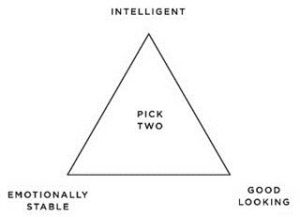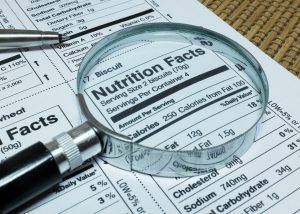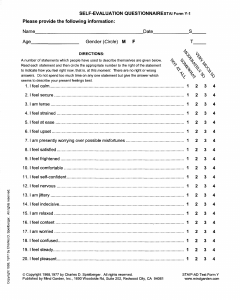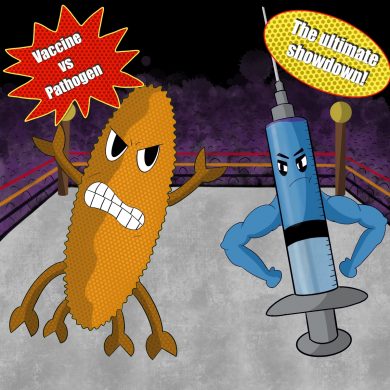Theresa Bui | Blogger | SQ Online (2016-17)

Point me to the genius who made me become an adult. Damn you, Father Time. How am I supposed to maintain an 8.0 GPA, a bank account above $0.48, eight hours of sleep, and relationships, all while having rock solid abs and a ba-doinky-doink? Once again, damn you, Father Time. With only 24 hours a day, I certainly can’t achieve all of these, but I try. Let’s be honest: I personally don’t have time to do everything on those bodybuilding.com programs. Well I have a solution, or possibly, many solutions.
Exercise! Exercise is simply a physical activity, commonly done to improve health. There are two types of exercises: aerobic and anaerobic. Aerobic exercise causes the heart to pump oxygenated blood to working muscles. It is a low- to moderate-intensity activity that can be carried out for quite some time. Examples are running, hiking, swimming, and skiing. Anaerobic (non-oxygen conditions) exercise engages muscle cell reactions that don’t use oxygen to maintain muscle contraction. It is short-term, high-intensity activity. Examples are sprinting, weight training, and high-intensity interval training circuits. Find the form of exercise that’s most enjoyable for you, whether it’s sports, cardio, hiking, or weight training. I personally prefer weight training at the gym because I walk all over campus, but my gym buddy prefers running on the treadmill and weight training together. Mix and match to find your comfort zone, and reap the numerous benefits. I will primarily focus on three benefits from aerobic exercise: physical, intellectual, and emotional.
Physical
- Maintains weight
-

Image 2. The common placement of the calories category on a Nutrition Facts label (Source) A Calorie is a unit of heat equivalent to the volume of energy specific foods will provide. Yousee it at the top of every nutrition facts label. These labels are determined by a calorimeter, which determines the amount of energy or heat required to raise the temperature of 1 gram of water by 1 degree Celsius. More often than not, exercise is motivated by the idea of weight loss. To achieve weight loss, there must be a caloric deficit, meaning you consume fewer calories than you burn. You can often count calories using phone apps such as MyFitnessPal or Lose It!, both available in the app store for free. However, if you simply want to maintain your weight, the Centers for Disease Control and Prevention recommends that American citizens get 150 minutes of mild exercise a week, 75 minutes of vigorous exercise a week, or a self-determined mixture of both every week to maintain their current weight.
-
- Protects cardiovascular system
- Consistent exercise equals strong beating heart equals longer life. A sedentary lifestyle is a risk factor for cardiovascular disease. Students often do lead that sedentary lifestyle due to the long hours lectures and homework require. The Journal of Physiology studied the effects of exercise on the cardiovascular system. The research was done by recording the changes in common risk factors such as lipoproteins, diabetes, and hypertension. Exercise can maintain or enhance heart variability and endothelial function (blood pressure), and limit vascular stiffness.
Emotional
- Controls mood and stress

Image 3. Basic Spielberger State-Trait Anxiety Inventory for self evaluation. (Source) - When you exercise, your stress and anxiety will lessen due to the changes in your brain chemistry. The Anxiety and Depression Association of America actually recommends exercise as a form of therapy. Exercise induces the production of endorphins, proteins that are similar to opioids. Exercise also produces dopamine (a.k.a. the reward molecule), norepinephrine, and serotonin (a.k.a. the confidence molecule). All of these neurotransmitters play a role in “activating” happiness and euphoria. A 1998 study conducted at Midwestern University Town evaluated cancer survivors in a 10-week aerobic exercise program. The independent variable was the type of treatment: exercise, exercise and behavioral modification, and placebo. The dependent variable is depression based on Beck Depression inventory, anxiety based on the Speilberger State-Trait Anxiety Inventory, and self-esteem based on the Rosenberg Self-Esteem Inventory. As a result, the study concluded that mild to moderate aerobic exercise relieves depressive and anxiety symptoms; however, it had no effects on self-esteem. Click here for more information on the study.
Intellectual
- Aids memory and decision-making skills
- Someone let Meredith Grey know that she can avoid becoming her mother! Any Grey’s Anatomy fans? Anyway, a 2014 study from the British Medical Journal found that regular aerobic exercise increases the size of the hippocampus, the brain center of emotion, memory, and the autonomic nervous system. The study subjects were older women with probable Mild Cognitive Impairment (MCI). MCI is a risk factor for dementia and can lead to Alzheimer’s disease. Exercise intervenes and alters the possibility cognitive and functional deterioration.
- May improve sleep
- The connection between exercise and sleep is still being studied. However, it is hypothesized that exercise may stabilize circadian rhythms, which is the approximate 24-hour cycle for physiological processes. But I mean, if you tire yourself out with exercise, you’ll sleep more deeply anyway.
Most of the studies I mentioned above were done using aerobic exercises. However, you should exercise with your interests in mind and just become more active. If you want to run a marathon, do cardio and aerobic exercises at RIMAC’s bottom floor. If you want to improve at volleyball, join an intramural team. If you want to learn how to box, take a boxing class (by the way, this is approximately 70—80% anaerobic and 20—30% aerobic). If fear is holding you back, remember that everyone has to start somewhere. Simply allotting the minimum amount of time can make a world of difference.
Below are several exercise opportunities provided by UC San Diego.
https://recreation.ucsd.edu/facilities/facilities/
https://recreation.ucsd.edu/10-wonderful-winter-recreation-wonders/
References:
- https://www.cdc.gov/healthyweight/physical_activity/
- http://www.science.uwaterloo.ca/~cchieh/cact/c120/calorimetry.html
- http://onlinelibrary.wiley.com/doi/10.1113/jphysiol.2009.179432/full
- https://www.psychologytoday.com/blog/the-athletes-way/201211/the-neurochemicals-happiness
- http://www.healthline.com/health/depression/exercise
- https://www.ncbi.nlm.nih.gov/pmc/articles/PMC4508129/
- https://www.sciencedaily.com/terms/circadian_rhythm.htm
- https://www.ncbi.nlm.nih.gov/pubmed/12531177

